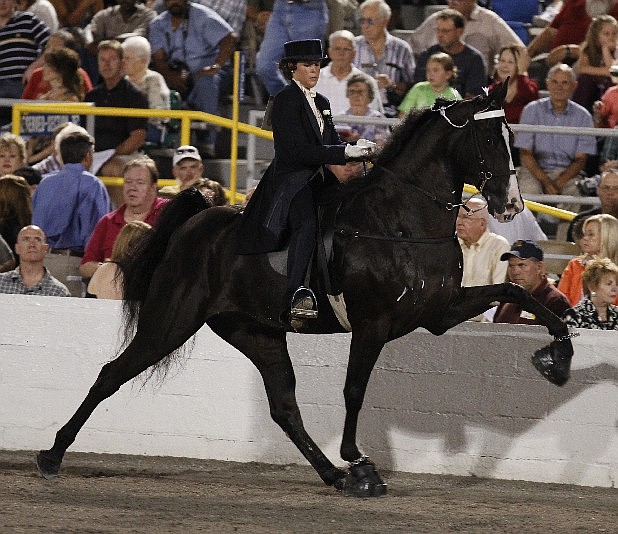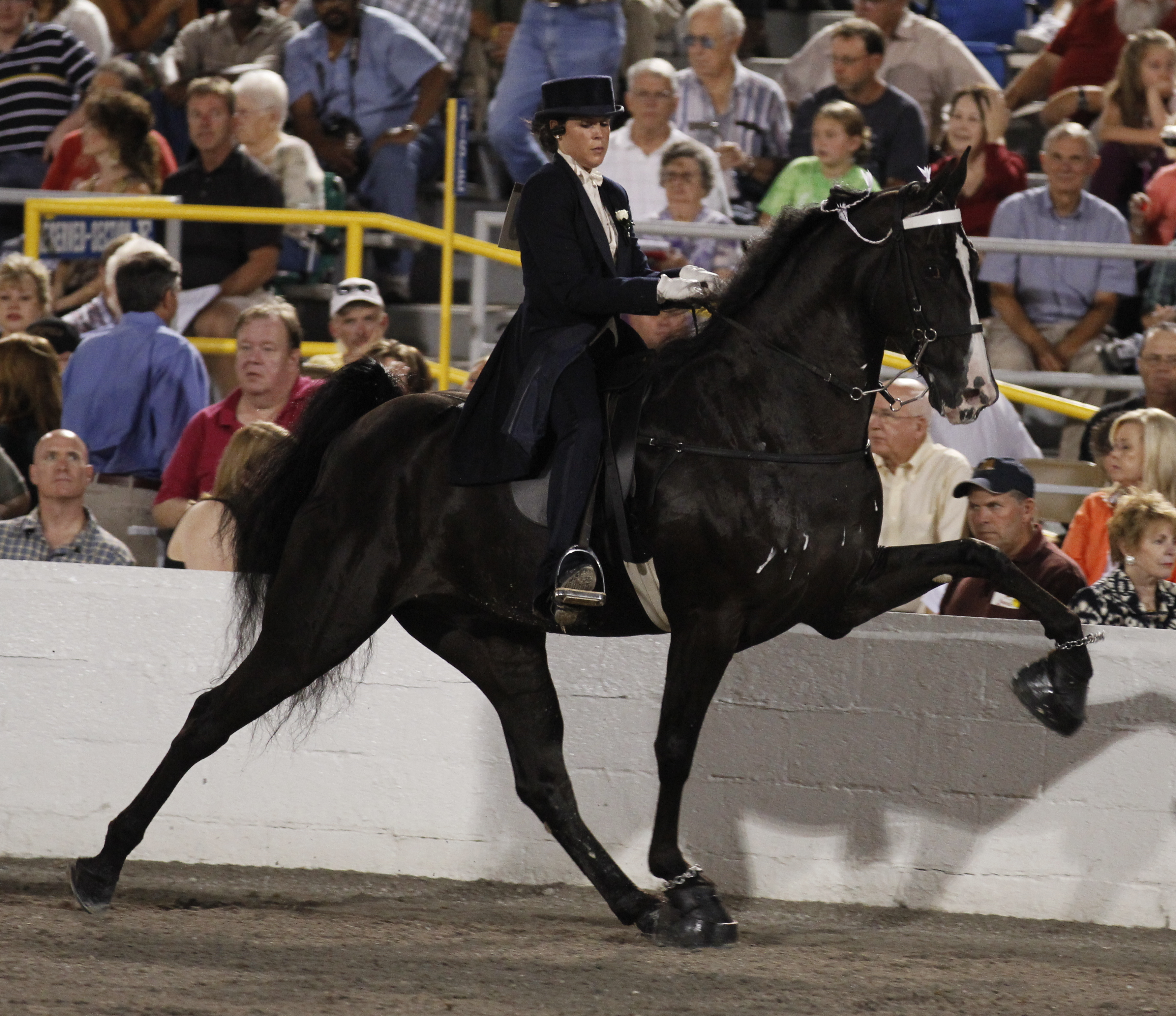Tennessee walking horses aren't especially rare, but you don't see them too often in New Hampshire.
That might explain why the effort to regulate horse soring more vigorously suddenly has a fighting chance.
Sen. Kelly Ayotte, a New Hampshire Republican, pushed a bill on soring -- the practice of inducing the high-stepping "big lick" by pouring caustic chemicals on horses' hooves or putting painful devices there -- through the Senate Committee on Commerce, Science and Transportation earlier this month.
Her bill bears an uncanny resemblance to legislation offered in the House by Rep. Ed Whitfield, R-Ky. Both are much more aggressive about inserting the federal government into regulating the Tennessee walking horse business than the counterproposal offered by Rep. Marsha Blackburn, R-Brentwood.
But here's the news that jumped off the page the day Ayotte's bill moved forward: She says her bill had 50 Senate co-sponsors, while Whitfield's has 268 in the House.
Those are big numbers. And that's a serious threat to the folks who thought it was safe to go back to letting the walking horse industry regulate itself.
Ayotte didn't name the co-sponsors, but Sen. Lamar Alexander of Tennessee clearly isn't one of them.
Tennessee's senior senator is working on alternative legislation that takes Blackburn's proposal -- which leaves the power of regulation largely in the hands of folks in the walking horse industry -- and strengthens it in three ways: 1) by requiring equine veterinarians to be given an advisory role on testing methods and procedures and to have them certify test results; 2) by establishing suspension periods for horses found to be sored; and 3) by requiring term limits for a newly created oversight board.
But the core remains self-regulation. And Alexander's bill doesn't do anything about the use of ankle chains and tall horseshoes, which the humane society says are used in soring, too.
The guess here is that Alexander has been doing quite a bit of talking to his fellow senators since he saw the number of co-sponsors on Ayotte's bill. Perhaps the importance of the walking horse industry to Tennessee's economy required some explaining. His colleague to the north, Sen. Mitch McConnell, R-Ky., might well be doing the same.
But we can go out on a limb here and say that senators from other parts of the country might not find that case so persuasive.
That's especially likely if they have seen the secretly recorded videotape of trainer Jackie McConnell and his staff using the age-old training technique of beating a horse with a stick -- and surely the energetic folks at the Humane Society of the United States have made sure that footage has made its way around Capitol Hill.
None of this is intended to minimize the impact strict regulation of the industry would have on the Shelbyville economy. There's a good chance it would be devastating.
It's also true that in the current state of dysfunction prevailing in Congress, no legislation of any kind, even if it had a majority of the body as sponsors, would be anything like a sure thing. It's far easier to kill a bill than to pass one.
Certainly no one would be surprised. The walking horse industry has weathered many attempts to regulate it, and it always seems to bounce back.
But so does the cheating.
Still, unless Alexander can make the case to his fellow senators that they should have a more visceral reaction to the loss of jobs in Tennessee towns than to the torturing of horses, Whitfield's and Ayotte's stab at stricter regulation has a better chance of passing than ever.

